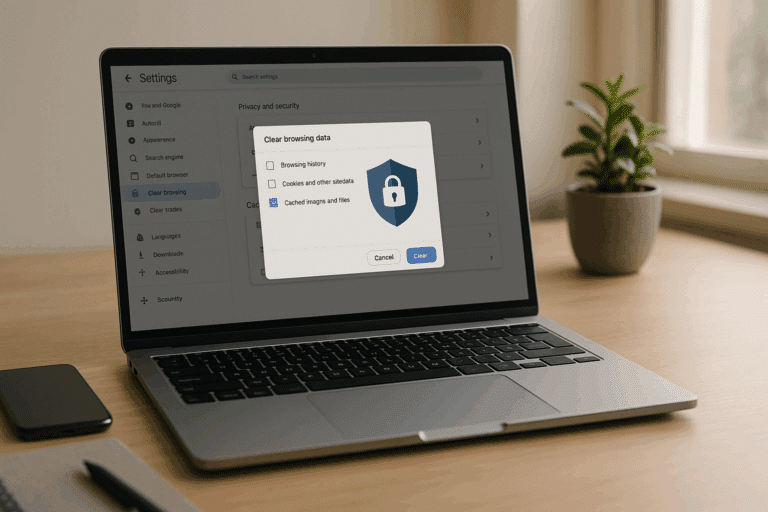But just as we benefit from this online universe, so do malicious entities lurking in the dark corners of the internet. One wrong click and your personal data can be whisked away, leaving you vulnerable to a host of security threats. This is where the power of top browser extensions for protection comes into play. They are the unsung heroes in our digital life, shielding our online presence with steadfast resolve.🛡️
As we dive deep into this topic, we will demystify these digital knights, their role, and how they can help you maintain your online safety while offering a seamless browsing experience. So let’s ready our digital armor and get ready to delve into the vast realm of browser extensions and their role in web security.💻
From encrypted connections and ad-blocking to anti-tracking and secure password management, browser extensions for protection play a critical role in preserving your online privacy. But not all extensions are created equal. Understanding how each one functions can be a labyrinth of technical jargon that leaves even the most tech-savvy users scratching their heads. However, fear not, as this article aims to unravel the complexities and present the information in a digestible manner.👨💻
The Digital Shield: Your First Line of Defense
While browsing the web, you expose yourself to a variety of potential security threats. Cybercriminals are always on the prowl, looking for opportunities to snatch your sensitive information. This could be anything from your login credentials and financial information to your personal photos and messages. The internet, as vast and informative as it is, can also be a perilous landscape if not navigated with caution. It’s here that browser extensions for protection step in as the first line of defense, a digital shield that safeguards you against these looming threats.🛡️
Understanding the Role of Browser Extensions for Protection
Do you understand the role these digital knights play in protecting your online presence? These extensions perform a multitude of functions. Some work quietly in the background, encrypting your data and providing a safe passage for your online interactions, while others warn you of potential threats and even block them. Their primary aim? To ensure your online security and privacy, while offering you a smoother, more enjoyable browsing experience.🌐
Know Your Extensions: The Good, The Bad, and The Essential
Not all browser extensions are created equal. Some offer stellar protection, while others may be wolves in sheep’s clothing. And then there are those that, while not particularly harmful, can slow down your browsing experience significantly. Understanding which ones are beneficial, which are harmful, and which are simply essential is key to navigating the vast ocean of available extensions. This article will explore the best browser extensions for protection, highlighting their features, advantages, and potential drawbacks, so you can make an informed decision.🔐
There is no denying the significant role browser extensions play in ensuring online safety. They are the unsung heroes in the vast digital universe, tirelessly working to keep us safe from cyber threats. By understanding their role and knowing how to choose the right ones, we can shield our online presence effectively. So let’s march forward into the realm of these digital knights and fortify our online defenses.🚀
Understanding the Importance of Online Protection
As the Internet continues to evolve, so too do the threats that lurk within its vast expanses. Cybersecurity is no longer a luxury, but an absolute necessity in today’s digital age. Whether you are a casual browser or an Internet power user, protecting your online presence is paramount. It’s not just about shielding personal information, but also about maintaining your digital footprint. This article will focus on various browser extensions that can help enhance your online security and privacy. So let’s get started!
Why is online protection so crucial, you might ask? Simply put, the information you share online, knowingly or unknowingly, can be used against you in multiple ways. This can range from identity theft and financial fraud to cyberstalking and online harassment. Additionally, corporations and ad agencies often track your online activities to create a profile for targeted advertising. This can lead to a serious invasion of your privacy.
The good news is that there are numerous browser extensions available that can help bolster your online security. These tools can block malicious websites, encrypt your data, prevent tracking, and even warn you about potential phishing attempts. By choosing the right combination of extensions, you can create a fortified browsing experience, tailored to your unique needs.
Top Browser Extensions for Online Protection
While there are countless browser extensions available for protecting your online presence, not all of them are created equal. Here, we will examine some of the top-rated and most trusted browser extensions that provide robust online protection. Let’s delve into the specifics of each extension and see what sets them apart.
1. HTTPS Everywhere
As the name suggests, HTTPS Everywhere ensures that you always connect to websites via a secure, encrypted connection whenever possible. This browser extension, developed by the Electronic Frontier Foundation (EFF), automatically switches sites from insecure “HTTP” to secure “HTTPS”. It’s a must-have for anyone concerned about online privacy and security. 🔒
2. Privacy Badger
Another great offering from EFF, Privacy Badger, is designed to stop advertisers and third-party trackers from secretly tracking where you go and what pages you look at on the web. It’s an excellent tool for those concerned about the pervasive nature of online tracking. 🕵️♂️
3. uBlock Origin
uBlock Origin is a highly efficient ad blocker with a low memory footprint. It not only blocks annoying ads but also prevents trackers and malicious websites. The best part about uBlock Origin is its flexibility – you can customize what you want to block and what you don’t, providing a personalized and secure browsing experience. 🛡️
Comparing Top Browser Extensions
Now that we’ve introduced some of the best browser extensions for online protection, let’s compare them in a side-by-side fashion. This will help you understand the unique benefits of each extension and how they complement each other in providing a comprehensive shield for your online presence.
| Browser Extension | Function | Key Features |
| HTTPS Everywhere | Ensures secure, encrypted connections | Automatically switches sites from HTTP to HTTPS |
| Privacy Badger | Blocks third-party trackers | Prevents secret tracking by advertisers |
| uBlock Origin | Ad blocker and privacy tool | Blocks ads, trackers, and malicious websites |
Check out the following video for a deeper dive into these extensions: “Top Browser Extensions for Online Protection” by The Cybersecurity Hub on YouTube. This video provides a detailed walkthrough of each extension and their benefits.
Choosing the Right Extensions for You
While the browser extensions discussed above are among the best in terms of online protection, it’s essential to choose the ones that best suit your specific needs. For instance, if you’re primarily concerned about ad tracking, Privacy Badger might be the perfect fit for you. On the other hand, if you want a more comprehensive solution that blocks ads, trackers, and malicious websites, uBlock Origin could be a better choice.
In conclusion, protecting your online presence is crucial in today’s digital age. The right set of browser extensions can go a long way in safeguarding your personal information and enhancing your browsing experience. Don’t wait for a cyber threat to strike – take proactive measures today and shield your online presence with these top browser extensions. Remember, your online security is in your hands! 🖐️

Conclusion
In conclusion, the digital landscape is a vast expanse of innovation and opportunity. Our journey through the complex terrains of IT and Engineering have led us to appreciate the importance of understanding these concepts and how they drive the world we live in today.
We’ve navigated the intricate world of Software Engineering, delving into its theories, practices, and the significance of applying them in our businesses and lives. The concept of software development life cycle, its phases, the various models like Waterfall, Agile and V-Model have been dissected. We’ve seen how these models facilitate a smoother and efficient process of creating software, ensuring better quality and results.
We’ve also tackled the subject of Information Technology and its profound influence on our lives. The IT sector, with its key elements like Networking, Database Management, and Cybersecurity, is not just a technological necessity but also a societal one. The internet of things (IoT), cloud computing, and artificial intelligence, are no longer jargon, but integral parts of our lives that dictate our everyday functions.
I hope that this in-depth overview of these complex subjects has shed some light and given you a better understanding. Remember, the beauty of these complex subjects lies in their application. These are not just theoretical concepts but practical tools that we use in our everyday lives. So, I encourage you to not only understand these concepts but also apply them. The world is in a constant state of technological evolution and it is crucial to keep pace with it.
Knowledge is power, and in a world driven by technology, being well-informed and technologically adept is more important than ever. I hope you found this article useful and informative. Please do share it with your colleagues or anyone who you think might benefit from it. I would also love to hear your thoughts on this, so feel free to drop a comment below.
In the end, let’s keep learning, let’s keep growing, and let’s continue to embrace the amazing world of technology.🚀
To read more about Software Engineering, you may visit this active link: Software Engineering Institute.
For more information about Information Technology, you may check this active link: Bureau of Labor Statistics – Computer and Information Technology.
Sources:
Software Engineering Institute
Bureau of Labor Statistics – Computer and Information Technology
Keywords: Software Engineering, Information Technology, Software Development Life Cycle, Agile Model, Waterfall Model, V-Model, Networking, Database Management, Cybersecurity, Internet of Things, Cloud Computing, Artificial Intelligence.
#SoftwareEngineering #InformationTechnology #DigitalInnovation #TechKnowledge #TechLife 🌐💻🚀



